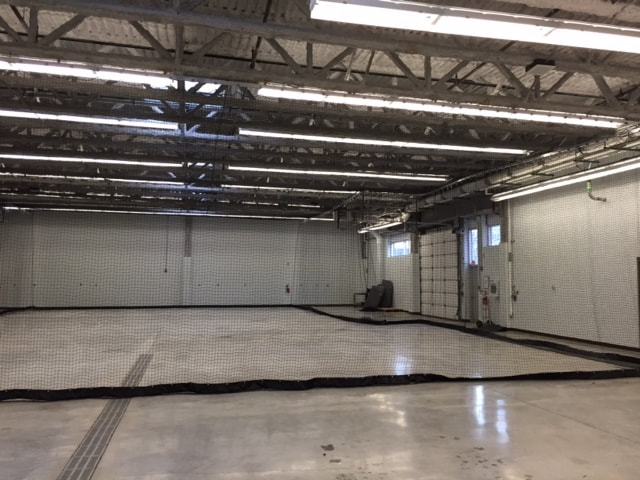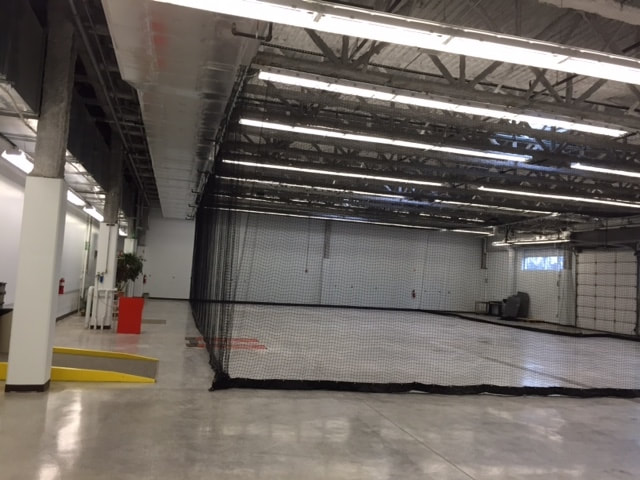Bird Netting Near Me commercial Fish & Pond structures and Installation Page.
|
Bird netting offers commercial fisheries protection for fish and pond management. Firstly, bird netting provides an effective and non-invasive solution to protect valuable fish stocks from avian predators. Transitioning from traditional methods, such as scare tactics or chemical deterrents, to bird netting ensures a more sustainable and environmentally friendly approach. Additionally, bird netting serves as a versatile solution, adapting seamlessly to various pond sizes and shapes, offering a tailored fit for diverse commercial fisheries. Transition words such as "moreover" and "furthermore" emphasize the multifaceted benefits, including the prevention of fish stress and injuries caused by birds, ultimately contributing to improved fish health and growth rates.
Furthermore, the installation of bird netting proves to be a cost-effective investment for commercial fisheries, reducing potential losses due to bird predation and mitigating the need for frequent, expensive restocking. Transitioning to bird netting also fosters a safer environment for both fish and pond ecosystems by preventing the introduction of harmful contaminants associated with alternative deterrent methods. Moreover, the adaptability of bird netting facilitates easy maintenance, ensuring that commercial fisheries can efficiently manage and monitor their operations without compromising the integrity of the netting system. In conclusion, the advantages of bird netting for fish and pond commercial fisheries are abundant, offering a transition towards sustainable, cost-effective, and environmentally conscious practices. The use of transition words enhances the coherence and flow of the paragraph, emphasizing the seamless integration of bird netting into modern fisheries management strategies. Bird Netting Gallery Solar Panels before and after. |
|
In the realm of commercial fisheries, employing bird netting is not just a prudent choice but an indispensable necessity. Transitioning from conventional methods to modern solutions, bird netting emerges as a pivotal tool in safeguarding fishery operations. Firstly, it serves as an effective barrier, seamlessly integrating into the operational infrastructure to deter avian intruders.
Transitioning towards sustainability, bird netting plays a crucial role in mitigating the adverse impact of avian predation on fish stocks. Furthermore, by embracing bird netting technology, fisheries experience a seamless transition towards eco-friendly practices. This results in a notable reduction in the ecological footprint, fostering a harmonious coexistence between commercial interests and environmental preservation.
Additionally, the use of bird netting showcases a marked transition from reactive measures to proactive conservation strategies. By preventing avian interference, fisheries can uphold the delicate balance of their ecosystems, ensuring a sustainable supply chain. Transitioning towards bird netting not only fortifies fisheries against economic losses due to bird predation but also marks a positive stride towards responsible and ethical business practices. In conclusion, the incorporation of bird netting into commercial fisheries represents a transformative shift towards ecological harmony, sustainability, and economic stability.
Transitioning towards this innovative solution is not merely a choice but an imperative step for modern fisheries seeking to secure their operations, protect aquatic ecosystems, and thrive in an environmentally conscious marketplace.
Transitioning towards sustainability, bird netting plays a crucial role in mitigating the adverse impact of avian predation on fish stocks. Furthermore, by embracing bird netting technology, fisheries experience a seamless transition towards eco-friendly practices. This results in a notable reduction in the ecological footprint, fostering a harmonious coexistence between commercial interests and environmental preservation.
Additionally, the use of bird netting showcases a marked transition from reactive measures to proactive conservation strategies. By preventing avian interference, fisheries can uphold the delicate balance of their ecosystems, ensuring a sustainable supply chain. Transitioning towards bird netting not only fortifies fisheries against economic losses due to bird predation but also marks a positive stride towards responsible and ethical business practices. In conclusion, the incorporation of bird netting into commercial fisheries represents a transformative shift towards ecological harmony, sustainability, and economic stability.
Transitioning towards this innovative solution is not merely a choice but an imperative step for modern fisheries seeking to secure their operations, protect aquatic ecosystems, and thrive in an environmentally conscious marketplace.





